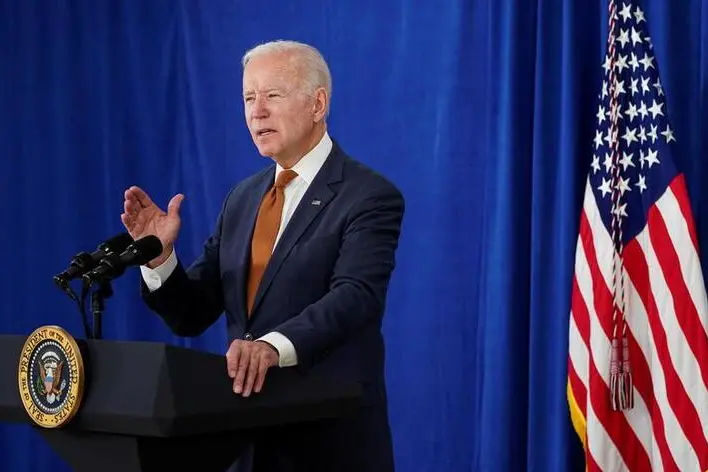PHOTO
US President Joe Biden will this month meet with his Russian counterpart, Vladimir Putin, in Geneva, Switzerland. While this will be the first time the two have met in person since Biden was sworn in, they have spoken on the phone in recent months. The last time the two met face to face was in 2011. At that time, Biden was vice president in the Obama administration.
The lead-up to the meeting in Geneva is already off to a rocky start. The only reason Biden proposed a meeting in the first place was to reduce tensions with Moscow after Russias recent military buildup near Ukraine. At first, Putin was hesitant to accept the invitation to meet. Putins reluctance whether genuine or not made Biden look desperate.
The international community should lower its expectations on what will come out of it. In terms of practical outcomes, the Biden-Putin summit will likely be a waste of time.
The White House press secretary last week told reporters: The leaders will discuss the full range of pressing issues, as we seek to restore predictability and stability to the US-Russia relationship. This is wishful thinking. There is nothing happening in the US-Russian relationship suggesting that predictability and stability are currently possible.
Meanwhile, Russia is not wasting an opportunity to flex its muscles. Sergei Ryabkov, Russias deputy foreign minister, this week said that, as the meeting date approaches, The Americans must assume that a number of signals from Moscow will be uncomfortable for them, including in the coming days. What this means is anyones guess, but it is hardly the language used to indicate that a cordial and collegial meeting is expected.
Biden is the only US president that has entered office since 1999 without the false hope of improving relations with Putins Russia. In 2001, after meeting with the Russian president, George W. Bush infamously said: I looked the man in the eye. I found him very straightforward and trustworthy I was able to get a sense of his soul. However, by Bushs second term, Russia had invaded Georgia.
President Barack Obama was also wildly optimistic about relations with Russia. At a meeting in Geneva in 2009, Obamas then-Secretary of State Hillary Clinton pressed a reset button with her Russian counterpart Sergey Lavrov to symbolically make a new start on US-Russian relations. However, by Obamas second term, the Russian reset had turned into regret. Russia invaded and illegally annexed Crimea in 2014 and helped to cover up Basher Assads use of chemical weapons in Syria.
Of course, President Donald Trump was very vocal in his desire to improve relations with Russia while on the campaign trail even offering platitudes to Putin at times. When the two leaders finally met in Helsinki in July 2018, the joint press conference turned into a diplomatic disaster for the American president. Not only did Trump look weak and meek standing next to his Russian counterpart, but he also received a considerable amount of blowback in America from both Democrats and Republicans for his shoddy performance. In the following months after the Helsinki meeting, US-Russian relations reached a new low.
So what will be achieved in Geneva? Although the meeting is unlikely to lead to improved US-Russian relations, it might lead to better political ratings at home for both leaders.
For Putin, the fact that Biden extended an invitation to meet in the first place is a victory. Putin wants to be seen as an equal to the president of the US, especially in the eyes of his people. What better way to place Russia and the US on a level playing field than the two leaders meeting one on one. With Putin playing hard to get after Biden extended an invitation to meet, it looked like he was the one calling the shots.
For Biden, the meeting with his Russian counterpart gives him an opportunity to look tough if he plays his cards right. For the US media, the obvious point of comparison for the upcoming meeting in Geneva will be Trumps summit in Helsinki. Those around Biden are politically astute enough to know that, if the president can get through the meeting in Geneva standing up to Putin, then he will look like the statesman that Trump failed to be in Helsinki.
To do this, Biden should do what Trump failed to do and publicly challenge Putin on issues such as cyberattacks against the US, the continued occupations in Georgia and Ukraine, and Moscows continued support to Assad in Syria. From military interventions in neighboring countries to assassination attempts targeting political dissidents across Europe, there is no shortage of issues for Biden to raise.
Since first coming to power, nothing has shown that Putin can be a trustworthy partner of the US.
Luke Coffey
The sooner the Biden administration establishes realistic expectations for the outcome of the meeting the better. Putin has been either the president or prime minister of Russia since 1999. And, because of constitutional changes, he can serve in either one of these positions for the rest of his life. Since first coming to power, nothing has shown that Putin can be a trustworthy partner of the US. At almost every turn, he has tried to undermine Americas position in the world or that of its allies and partners. There is no reason for Biden to think that this has changed now. Do not expect much out of the upcoming summit. As long as Putin remains in the Kremlin, US-Russian relations are unlikely to improve.
- Luke Coffey is the director of the Douglas and Sarah Allison Center for Foreign Policy at the Heritage Foundation. Twitter: @LukeDCoffey
Copyright: Arab News 2021 All rights reserved. Provided by SyndiGate Media Inc. (Syndigate.info).





















